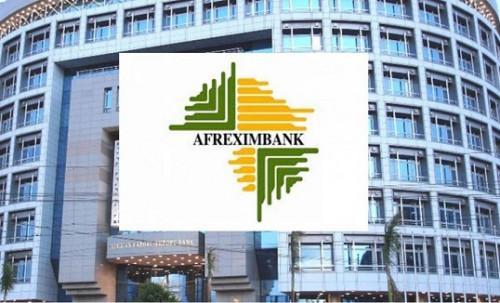Professor Benedict Oramah’s decade-long tenure as President and Chairman of the Board of Directors of the African Export-Import Bank (Afreximbank) has concluded amidst a backdrop of credit rating downgrades by international agencies. His departure coincides with Moody’s lowering Afreximbank’s rating from Baa1 to Baa2, just two notches above “junk” status, citing weaker-than-expected asset performance and the bank’s increased exposure to unsecured sovereign lending, particularly to struggling economies like Ghana and Zambia. This downgrade follows a similar action by Fitch, which placed Afreximbank just one notch above junk with a negative outlook, raising concerns about high credit risks and weak risk management, particularly regarding a high percentage of non-performing loans. The African Peer Review Mechanism contested Fitch’s assessment, arguing that the loan classification methodology was flawed. Moody’s, however, echoed some of the same concerns, highlighting the risks associated with Afreximbank’s shift towards unsecured lending to stressed sovereigns, a departure from its traditional focus on trade finance. This shift, coupled with the challenging operating environment in Africa, increases the bank’s vulnerability to potential losses, particularly given the mandatory restructuring requirements under the Common Framework for debt treatment, which often entails losses comparable to those faced by private creditors.
Despite the rating agencies’ concerns, Professor Oramah’s farewell address at the Afreximbank Annual Meetings 2025 painted a picture of substantial growth and transformation during his leadership. Recalling his initial promises upon assuming the presidency in 2015, Oramah emphasized his commitment to building a robust financial institution, enhancing capital growth, improving capital management, ensuring top-tier risk management, and delivering strong returns to shareholders. He pointed to significant achievements across these areas, highlighting an eightfold increase in total assets and guarantees, reaching $43.5 billion by April 2025. Similarly, total revenues saw a sevenfold increase to $3.24 billion, while net income soared to approximately $1 billion, a remarkable 700% increase from 2015 levels.
Oramah further underscored the bank’s strengthened capital position, noting that shareholders’ funds had grown from $1 billion in 2015 to $7.5 billion in 2025, supported by internal capital generation and robust shareholder investments. Callable capital also experienced substantial growth, reaching $4.5 billion. The bank’s funding sources diversified significantly, with the proportion of African funding increasing from 11.7% in 2015 to 36.6% in 2025, a testament to the effectiveness of the Africa Resource Mobilisation Unit. This diversification strengthens the bank’s resilience and reduces its dependence on external funding sources.
Looking ahead, Oramah articulated a strategic focus on financing and promoting high-value exports, recognizing their potential to stabilize export revenues, generate employment opportunities, and bolster overall economic stability in Africa. This emphasis on value-added exports signifies a shift towards supporting industries with greater potential for sustainable growth and development, aligning with the broader goal of fostering economic transformation across the continent.
The contrasting narratives – one of credit rating downgrades highlighting increasing risk exposure, and another of significant financial growth and a focus on future-oriented strategies – present a complex picture of Afreximbank’s current position. While Oramah’s tenure has undoubtedly overseen significant expansion and diversification of the bank’s operations, the concerns raised by rating agencies suggest potential underlying vulnerabilities that require careful attention. The incoming president, George Elombi, a long-serving member of Afreximbank since 1996, will inherit both the legacy of this growth and the challenge of navigating these concerns.
Elombi’s long tenure at Afreximbank, starting as a legal officer and progressing through the ranks, positions him with a deep understanding of the institution’s operations and the challenges it faces. His leadership will be crucial in addressing the concerns raised by the rating agencies, particularly regarding the bank’s risk management practices and its exposure to sovereign debt. He will need to strike a balance between continuing to support African economies, particularly those facing financial difficulties, and mitigating the risks associated with such lending. His ability to navigate this complex landscape will determine the bank’s future trajectory and its ability to fulfill its mandate of promoting and financing intra- and extra-African trade.
The transition in leadership at Afreximbank comes at a critical juncture for the institution and for the African continent as a whole. As African economies grapple with various challenges, including debt sustainability and the need for economic diversification, the role of Afreximbank in supporting trade and development becomes even more crucial. Elombi’s leadership will be instrumental in shaping the bank’s response to these challenges and in ensuring that it continues to play a vital role in promoting sustainable economic growth and development across Africa. His ability to build on the legacy of growth established under Oramah’s leadership, while simultaneously addressing the concerns raised by the rating agencies, will be key to the bank’s long-term success.


